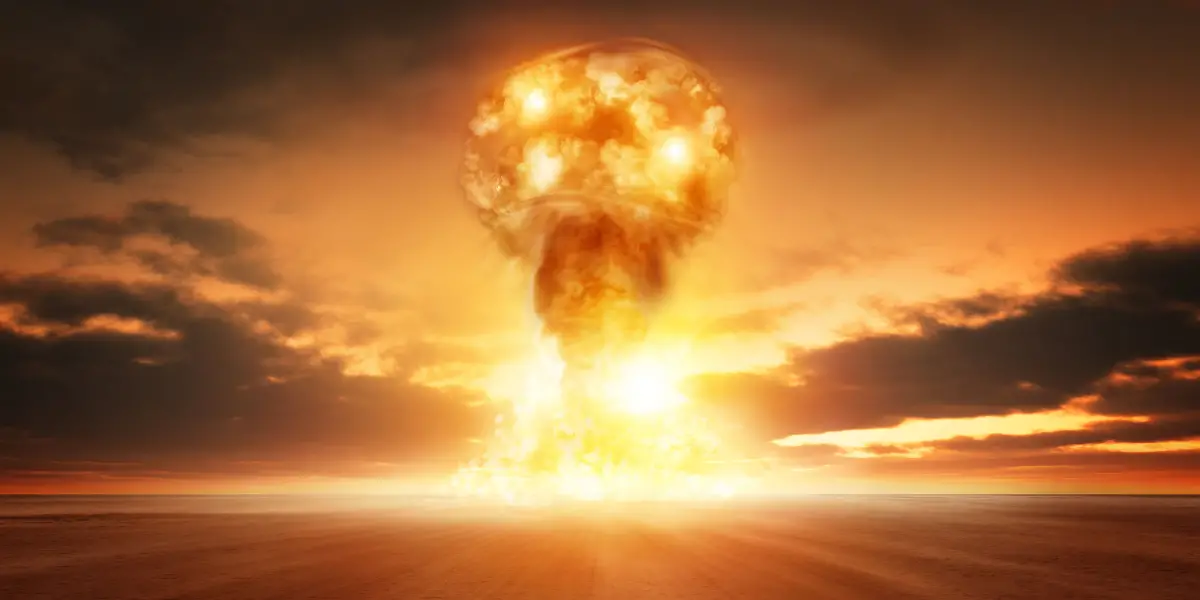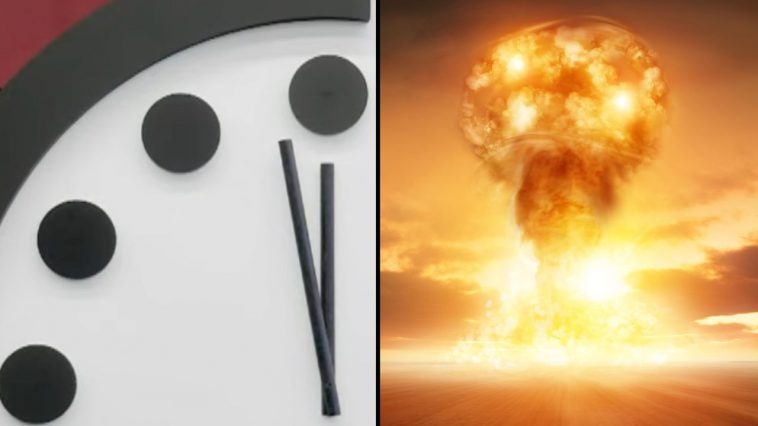The Doomsday clock is the closest it’s ever been to Armageddon.
The Doomsday Clock is a symbolic timer created by atomic scientists (including Albert Einstein) and was established in 1947, as per Reuters.
Initially created to warn the public about the dangers of nuclear war, the clock now warns us how close we are to total global annihilation as the result of manmade actions.
Currently, the biggest threat facing the planet is climate change, although geopolitical tensions and weapons of mass destruction are still endangering the planet.
The clock is updated annually by the Chicago-based non-profit organisation the Bulletin of Atomic Scientists, and this year’s update might just be the most frightening yet…
Related Article: Couple Claiming To Be Time Travellers From 2027 Share Footage ‘Proving They’re All Alone’
Related Article: Isaac Newton Predicted That The ‘End Of The World’ Is Coming Soon
On the Doomsday Clock, midnight represents the point of destruction, and every year, it inches closer and closer to the end.
When the Doomsday Clock was established, it was set at seven minutes to midnight and it has moved backwards eight times and forward 17 times since then.
The earliest position of the Doomsday Clock was in 1991 at the end of the Cold War – 17 minutes away.
In 2023, the clock advanced 10 seconds – making it 90 seconds to midnight.
This marked the closest it has ever been to Armageddon.
The major reason the clock moved forward last year was due to Russia’s invasion of Ukraine, which reignited global fears of a nuclear apocalypse.

Rachel Bronson, president of the Bulletin of the Atomic Scientists, told Vice: “Russia’s thinly veiled threats to use nuclear weapons remind the world that escalation of the conflict by accident, intention, or miscalculation is a terrible risk.
“The possibilities that the conflict could spin out of anyone’s control remains high.”
The statement adds: “The war’s effects are not limited to an increase in nuclear danger; they also undermine global efforts to combat climate change.”
And with these tensions still high, alongside new global tensions between Israel and Hamas, things don’t look set to get much better.
Now, there’s been an announcement as to the time left on the Doomsday clock.
Prior to the update, 41% of those surveyed by Manifold Markets believed that the Doomsday Clock would advance toward midnight in January 2024.
Related Article: Blind Mystic Baba Vanga Made Five Chilling Predictions For 2024
Related Article: NASA Confirms Mission To Explore Asteroid That Could Make Everyone On Earth A Billionaire
But now, the announcement has been made.
The clock remains the closest it has ever been to armageddon – at 90 seconds to midnight.
While it may sound good that it’s not moved any closer, it’s worth remembering that this is still the closest the clock has ever been to the end of the world.
Rachel Bronson explains: “Countries with nuclear weapons are engaged in modernisation programmes that threaten to create a new nuclear arms race.
“Earth experienced its hottest year on record and massive floods, fires, and other disasters have taken root.
“And lack of action on climate change threatens billions of lives and livelihoods.
“Preventing future pandemics has proven useful but it also presents the risk of causing one.
“And recent advances in recent artificial intelligence raise a variety of questions about how to control a technology that could improve or threaten civilisation in countless ways.”
Do you have a story for us? If so, email us at [email protected]. All contact will be treated in confidence.






